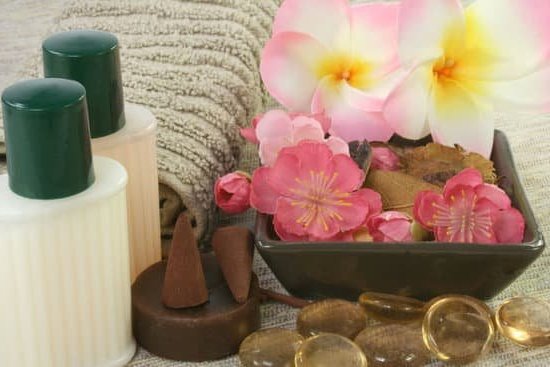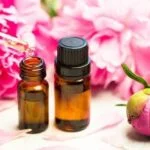Acne scars can be a common skin concern that many individuals struggle with, impacting self-confidence and overall skin health. One natural and holistic approach to addressing these scars is through the use of aromatherapy. By harnessing the power of essential oils, aromatherapy offers a gentle yet effective way to promote healing and reduce the appearance of acne scars.
Understanding the root causes and different types of acne scars is essential in developing an effective treatment plan. From atrophic to hypertrophic scars, each type requires specific care and attention. This article will explore how aromatherapy can play a role in alleviating these scars, providing valuable insights into the science behind essential oils’ healing properties.
Stay tuned as we delve deeper into the world of aromatherapy for acne scars, uncovering the best essential oils to use, how to safely incorporate them into your skincare routine, and even DIY recipes for at-home scar healing treatments. With the right knowledge and tools at your disposal, you can embrace the healing powers of aromatherapy and take proactive steps towards improving your skin health and confidence.
Understanding Acne Scars
Acne scars are a common skin concern that can have a significant impact on one’s self-esteem. Understanding the causes and types of acne scars is essential in determining the most effective treatment options. Acne scars are often the result of inflammation within the dermis caused by acne breakouts. When the skin tissue is damaged, collagen production can be disrupted, leading to different types of scars such as atrophic, hypertrophic, or keloid scars.
Atrophic scars are the most common type of acne scars and appear as depressions or indentations in the skin. They are usually caused by a loss of tissue during the healing process of acne breakouts. On the other hand, hypertrophic and keloid scars result from an excess of collagen production during the healing process, leading to raised and thickened scar tissue. Understanding the specific type of acne scar you have is crucial in determining the most suitable treatment approach.
Aromatherapy for acne scars has gained popularity due to its natural healing properties and ability to promote skin regeneration. Essential oils like lavender, tea tree, rosehip, and helichrysum are known for their anti-inflammatory and skin-rejuvenating properties, making them excellent choices for treating acne scars.
When used correctly, aromatherapy can help fade acne scars over time and improve overall skin texture. It is important to dilute essential oils properly before application to avoid skin irritation and always perform a patch test before using them on larger areas of the skin.
The Science Behind Aromatherapy
Aromatherapy has gained popularity for its ability to promote skin healing and rejuvenation, making it a promising option for addressing acne scars. Understanding the science behind aromatherapy can shed light on how essential oils work their magic on the skin. Essential oils are highly concentrated plant extracts that contain active compounds with various therapeutic properties. When used topically, these oils can penetrate the skin and interact with its layers to provide numerous benefits.
The key mechanism behind aromatherapy’s effectiveness in treating acne scars lies in the bioactive components of essential oils. For example, lavender essential oil is known for its anti-inflammatory and antioxidant properties, which can help reduce redness and promote healing of damaged skin tissues.
Tea tree oil, on the other hand, has antibacterial and antifungal properties that can prevent infection and speed up the healing process of acne scars. These oils work synergistically to target different aspects of scar formation, leading to visible improvements over time.
When applied to the skin through massage or other methods, essential oils stimulate various receptors, triggering physiological responses that contribute to skin rejuvenation. Additionally, inhaling the aroma of these oils can have a calming effect on the mind and body, reducing stress levels which may exacerbate acne flare-ups.
By understanding how essential oils work at a molecular level and appreciating their holistic benefits, individuals seeking natural solutions for acne scars can harness the power of aromatherapy for healthier-looking skin.
- Essential oils are highly concentrated plant extracts containing active compounds.
- Lavender oil possesses anti-inflammatory and antioxidant properties beneficial for reducing redness.
- Tea tree oil boasts antibacterial qualities that aid in preventing infection and promoting scar healing.
Best Essential Oils for Acne Scars
Essential oils have gained popularity in recent years for their numerous benefits, including their ability to help fade acne scars. When it comes to choosing the best essential oils for acne scars, lavender and tea tree oil are among the top choices.
Lavender oil is known for its soothing properties that can help reduce redness and inflammation associated with acne scars. On the other hand, tea tree oil has antimicrobial properties that can help prevent breakouts and promote healing of existing acne scars.
In addition to lavender and tea tree oil, there are several other essential oils that have been found to be effective in fading acne scars. Rosehip oil is rich in vitamins and antioxidants that can help repair damaged skin and promote collagen production, which is essential for scar healing. Frankincense oil is another popular choice due to its ability to reduce the appearance of scars and improve overall skin tone.
When using aromatherapy for acne scars, it’s important to dilute the essential oils properly to avoid skin irritation. A common dilution ratio is 1-2 drops of essential oil per teaspoon of carrier oil, such as coconut or jojoba oil. It’s also recommended to perform a patch test before applying the diluted essential oil to a larger area of skin to check for any adverse reactions.
| Essential Oil | Main Benefits |
|---|---|
| Lavender Oil | Soothing properties, reduces redness and inflammation |
| Tea Tree Oil | Antimicrobial properties, prevents breakouts and promotes healing |
| Rosehip Oil | Rich in vitamins and antioxidants, repairs damaged skin and promotes collagen production |
| Frankincense Oil | Reduces appearance of scars, improves overall skin tone |
Incorporating these essential oils into your skincare routine can be a natural and effective way to fade acne scars over time. Remember that consistency is key when using aromatherapy for acne scars, so make sure to apply the diluted essential oils regularly as part of your daily skincare regimen. With patience and proper application techniques, you may start seeing improvements in the appearance of your acne scars sooner than you think.
How to Use Aromatherapy for Acne Scars
Aromatherapy, the practice of using essential oils for therapeutic purposes, can be a natural and effective way to help fade acne scars. When it comes to using aromatherapy for acne scars, proper dilution, application methods, and safety precautions are important factors to consider. By following these tips, you can maximize the benefits of essential oils while minimizing any potential risks.
Dilution
Essential oils are highly concentrated plant extracts that need to be diluted before applying them to the skin. To use aromatherapy for acne scars safely, it is recommended to dilute essential oils in a carrier oil such as coconut, jojoba, or almond oil. The general rule of thumb for dilution is 1-2 drops of essential oil per teaspoon of carrier oil. This helps prevent skin irritation and sensitivities.
Application
When applying aromatherapy for acne scars, it is best to do a patch test on a small area of skin first to check for any adverse reactions. Once you have determined that the essential oil is safe for your skin, you can apply it directly to the affected areas.
Gently massage the diluted essential oil mixture into your skin using circular motions. You can also add a few drops of essential oil to your regular moisturizer or facial oil for added benefits.
Safety Tips
It’s important to always use high-quality, pure essential oils from reputable brands when using aromatherapy for acne scars. Avoid contact with the eyes and mucous membranes when applying essential oils topically. If you have sensitive skin or existing skin conditions, consult with a healthcare professional or dermatologist before incorporating aromatherapy into your skincare routine. Additionally, pregnant women and children should use essential oils with caution and under the guidance of a qualified practitioner.
By carefully following these tips on dilution, application methods, and safety precautions when using aromatherapy for acne scars, you can experience the healing properties of essential oils without causing harm to your skin. Experiment with different essential oils and find what works best for your unique skincare needs.
DIY Aromatherapy Recipes for Acne Scar Healing
Aromatherapy has been gaining popularity as a natural and effective way to help reduce the appearance of acne scars. By harnessing the power of essential oils, you can create your DIY aromatherapy recipes at home to target those stubborn marks left by acne. Here are some simple yet potent DIY recipes that you can try:
- Lavender Oil Serum: Mix 4-5 drops of lavender essential oil with a carrier oil like jojoba or rosehip seed oil. Apply this serum directly to acne scars before bedtime and gently massage into the skin.
- Tea Tree Spot Treatment: Combine 2-3 drops of tea tree essential oil with aloe vera gel. Dab this mixture onto individual acne scars using a clean cotton swab. Leave it on overnight for best results.
- Rosehip Seed Oil Blend: Blend equal parts of rosehip seed oil, frankincense essential oil, and helichrysum essential oil. This blend is known for its rejuvenating properties and can be applied to acne scars twice daily.
These DIY aromatherapy recipes are not only easy to make but also customizable based on your skin’s specific needs. Remember to patch test any new essential oils or blends before applying them directly to larger areas of skin to ensure no adverse reactions occur.
In addition to these recipes, consider incorporating aromatherapy into other aspects of your skincare routine such as using a few drops of your favorite essential oil in your moisturizer or creating a relaxing aromatherapy steam session for your face. With consistent use and proper dilution, aromatherapy can be a soothing and effective treatment for managing and reducing the appearance of acne scars over time.
Success Stories
Healing Acne Scars Naturally With Aromatherapy
Many individuals have found success in reducing the appearance of acne scars using aromatherapy. One popular essential oil for treating acne scars is lavender oil, renowned for its soothing and skin-regenerating properties. When applied topically, lavender oil can help fade acne scars over time, promoting a more even skin tone and texture.
Tea tree oil is another effective option for combating acne scars. Known for its anti-inflammatory and antimicrobial properties, tea tree oil can help reduce the inflammation associated with acne scars while preventing further breakouts. By incorporating tea tree oil into your skincare routine through spot treatments or diluted application, you may notice a visible improvement in the appearance of your acne scars.
Personal Testimonials on Aromatherapy for Acne Scars
Many individuals have shared their personal success stories using aromatherapy for acne scars. One user raved about the benefits of frankincense essential oil in fading stubborn acne scars, noting a significant improvement in their skin’s overall appearance after consistent use. Another individual reported positive results with rosehip seed oil, praising its hydrating and scar-fading effects on their acne-prone skin.
Combining Aromatherapy With Skincare and Lifestyle Changes
In addition to using essential oils for acne scar treatment, incorporating a holistic approach to skincare can enhance the healing process. Maintaining a consistent skincare routine that includes gentle cleansing, exfoliation, and moisturization can support the effects of aromatherapy in reducing acne scars.
Furthermore, making dietary changes such as consuming antioxidant-rich foods and staying hydrated can promote healthy skin cell turnover, aiding in scar recovery. By combining aromatherapy with these skincare and lifestyle adjustments, individuals can optimize their journey towards clearer, scar-free skin.
Additional Tips for Improving Acne Scars
Acne scars can be a frustrating reminder of past breakouts, but there are ways to improve their appearance beyond just using aromatherapy for acne scars. One crucial aspect to consider is your skincare routine. It’s essential to cleanse your face gently, avoiding harsh ingredients that can further irritate the skin. Opt for products with ingredients like hyaluronic acid, vitamin C, and retinol, which can help to brighten and smooth the skin over time.
In addition to a proper skincare routine, paying attention to your diet can also make a difference in the healing process of acne scars. Eating a balanced diet rich in fruits, vegetables, and antioxidants can promote overall skin health and support collagen production, which is essential for repairing damaged skin tissue. Drinking plenty of water is also crucial for keeping the skin hydrated and aiding in the regeneration of new cells.
Furthermore, making lifestyle changes such as getting enough sleep, managing stress levels, and avoiding picking or squeezing existing blemishes can all contribute to improving the appearance of acne scars. Lack of sleep and high stress levels can lead to increased inflammation in the body, which can worsen acne scarring.
It’s important to prioritize self-care practices that promote relaxation and overall well-being for healthier skin in the long run. By combining these additional tips with aromatherapy for acne scars, you can enhance the healing process and achieve clearer, smoother skin over time.
Conclusion
In conclusion, the healing powers of aromatherapy for acne scars are evident through the scientific understanding of essential oils and their effectiveness in promoting skin healing. By delving into the causes and types of acne scars, it becomes clear that essential oils like lavender, tea tree, and more have the potential to fade these marks and improve overall skin appearance.
The success stories shared by individuals who have incorporated aromatherapy into their skincare routine further emphasize its benefits in treating acne scars.
Moreover, learning how to properly use aromatherapy for acne scars is crucial in achieving positive results. Diluting essential oils, applying them correctly, and following safety tips ensures that this natural remedy is used effectively and without causing harm to the skin. DIY aromatherapy recipes provide a personalized approach to addressing acne scars, allowing individuals to tailor their treatment according to their needs and preferences.
In embracing the healing powers of aromatherapy for acne scars, it is important to remember that skincare routines, dietary choices, and lifestyle changes also play a significant role in improving skin health. By incorporating these additional tips along with aromatherapy treatments, individuals can take a holistic approach towards achieving clearer and healthier skin. Overall, aromatherapy offers a natural and gentle solution for combating acne scars, empowering individuals to regain confidence in their complexion and embrace a more radiant appearance.
Frequently Asked Questions
What Essential Oils Heal Acne Scars?
Some essential oils that are known to help heal acne scars include tea tree oil, lavender oil, rosehip oil, and helichrysum oil. These oils have anti-inflammatory and skin-regenerative properties that can promote healing and reduce the appearance of scars.
What Essential Oil Is Good for Reducing Scars?
One essential oil that is often recommended for reducing scars is helichrysum oil. This oil contains compounds that can help stimulate cell regeneration, improve skin tone, and fade scars over time. It is considered effective for both old and new scars.
Does Frankincense Remove Acne Scars?
Frankincense essential oil has been used traditionally for its skin-rejuvenating properties, including the potential to fade acne scars. Its anti-inflammatory and healing compounds may help to improve the appearance of scars over time with regular use. Though results may vary from person to person, many individuals have reported positive effects when using frankincense for acne scars.

Are you looking for a natural way to improve your health and wellbeing?
If so, aromatherapy may be the answer for you.



